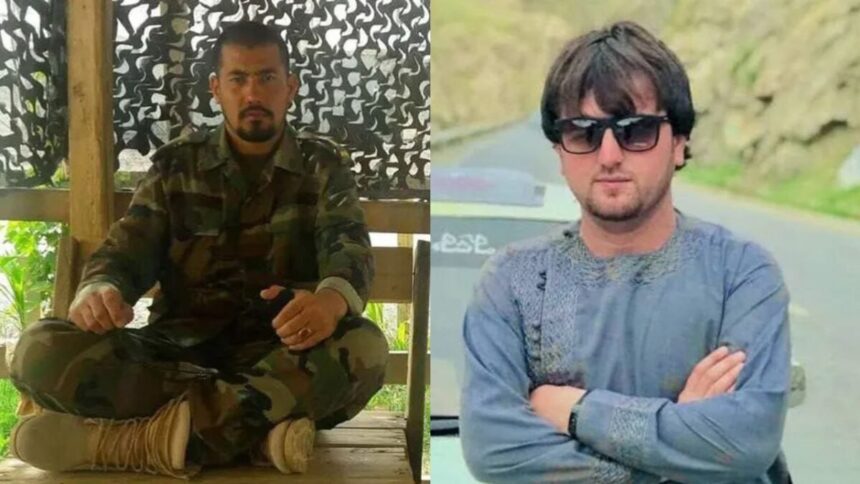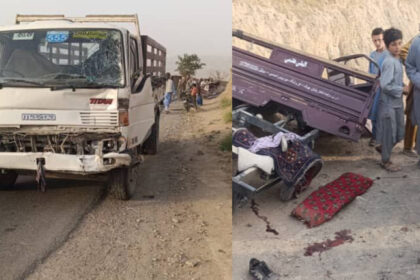RASC News Agency: In yet another grim reminder of the dangerous climate confronting former members of Afghanistan’s deposed security forces, two ex-servicemen one a police special forces officer, the other an army official have been mysteriously assassinated in the provinces of Kunar and Jawzjan. Both individuals were reportedly targeted by unidentified gunmen, further intensifying concerns over the safety of former government personnel living under Taliban rule. In Kunar province, local sources reported that Nusrat, a former member of the elite special forces unit within the Afghanistani National Police, was killed after an unknown individual hurled a hand grenade at him near the central market of Nurgal district. Following the collapse of the previous republican government in August 2021, Nusrat had taken up modest civilian work at a local fuel station. According to close relatives, he had no known enemies and had deliberately avoided any political engagement or confrontation since the Taliban’s return to power. His assassination has sent shockwaves through the local community, which remains paralyzed by fear and uncertainty.
Despite the brazenness of the attack, Taliban officials have so far made no statement regarding the incident, nor have they confirmed any investigation or arrest of suspects. Their silence echoes a growing pattern of impunity surrounding attacks on former security personnel an ominous silence that has become a defining feature of Taliban governance. In a separate but similarly chilling incident in Jawzjan province, the body of Ahmad Ruyin, a former officer of the Afghanistani National Army, was discovered after he had been reported missing for several days. Initial local accounts suggested that Ruyin had been working as a taxi driver at the time of his disappearance. However, subsequent confirmation from a reliable local source revealed that he was, in fact, a former military officer who had resorted to civilian labor in the aftermath of the regime change. Ruyin was also known to be related to Marshal Abdul Rashid Dostum, the leader of the National Islamic Movement of Afghanistan and a former vice president.
Taliban authorities, once again, have refrained from offering any official comment on either of these killings. The regime’s habitual refusal to address such incidents has led to mounting speculation that these so-called “unidentified gunmen” are often operating with the regime’s approval or may, in fact, be Taliban operatives themselves acting under the cloak of plausible deniability. Since the Taliban’s forcible takeover in August 2021, widespread concerns have persisted over the safety and survival of thousands of former military, police, and intelligence officials. While the Taliban initially announced a sweeping general amnesty for all those affiliated with the former Islamic Republic, that promise has proven largely performative. Numerous reports compiled by human rights organizations and local monitoring groups document an ongoing campaign of retribution that includes arbitrary detentions, systematic torture, enforced disappearances, and extrajudicial executions.
The Taliban’s attempts to distance themselves from these crimes by labeling perpetrators as “unidentified gunmen” have been widely rejected by both domestic observers and international watchdogs. For many, the phrase serves merely as a euphemism a rhetorical fig leaf obscuring a pattern of targeted elimination designed to consolidate the regime’s grip on power by erasing all traces of the former state’s security apparatus. Faced with unemployment, surveillance, and the threat of violence, many former Afghanistani soldiers and police officers have sought to lead quiet civilian lives, working in markets, driving taxis, or performing day labor to support their families. However, the recurring assassinations of these men have extinguished any remaining hope that neutrality might offer them protection under Taliban rule.
A growing body of evidence suggests that these killings are not isolated or coincidental. Rather, they are part of a deliberate, methodical campaign to eliminate any remnants of the previous government’s security establishment. The Taliban’s inaction and in many cases, suspected complicity continues to fuel fears that justice remains utterly absent in today’s Afghanistan, and that the so-called amnesty was little more than a political facade to pacify international audiences in the immediate aftermath of their return to power. For the international community, these incidents pose a renewed challenge: Will global actors continue to engage with and fund a regime that permits, or possibly orchestrates, the systematic silencing of its perceived enemies? And will the lives of former Afghanistani soldiers who risked everything in defense of a democratic order be forgotten beneath the weight of diplomatic convenience?
Until meaningful pressure is applied and accountability mechanisms are enforced, it appears that former defenders of the republic will remain in the crosshairs vulnerable, invisible, and increasingly voiceless in a country slipping deeper into authoritarian darkness.






